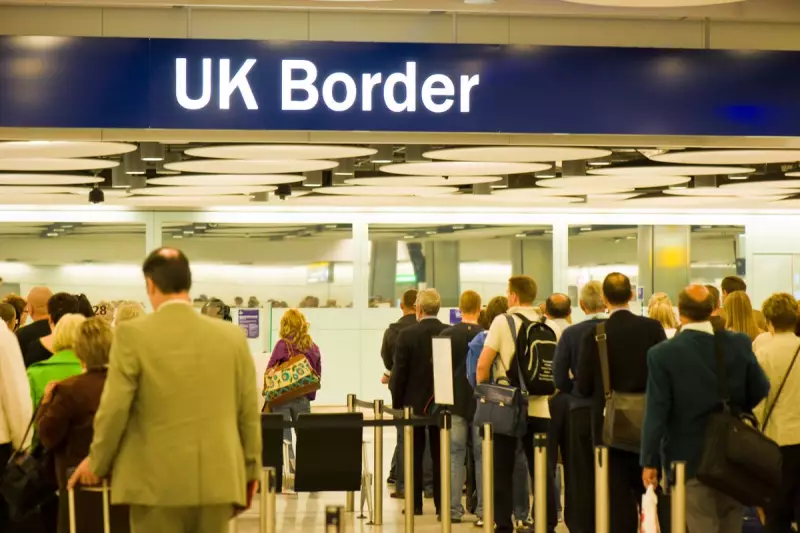
The Home Office has issued a stark warning to several foreign governments, threatening to suspend visa issuance to their citizens unless they enhance cooperation on the removal of illegal migrants from the United Kingdom. This development comes alongside new official data providing a comprehensive snapshot of who is migrating to the UK, both through legal and irregular channels.
Legal Migration: A Shifting Picture
According to the latest Home Office figures covering the year to June 2025, a total of 834,977 visas were granted to foreign nationals for employment, study, family, or humanitarian reasons. This represents a significant drop of 32% from the 1,231,899 visas issued in the previous year.
Indian citizens were by far the most common nationality among those granted legal entry, accounting for 165,970 visas, or almost one in five (19.9%) of the total. They were followed by nationals from China (114,128 visas, 13.7%), Pakistan (69,580, 8.3%), Nigeria (45,966, 5.5%), and the United States (30,898, 3.7%).
In contrast, the African nations singled out by the UK government for potential visa bans—Angola, Namibia, and the Democratic Republic of Congo—represented a minuscule fraction of legal visas. Only 273 visas were granted to Angolans, 140 to Namibians, and 299 to citizens of the DRC.
Irregular Arrivals and Asylum Claims
The profile of migrants arriving illegally in the UK presents a starkly different picture. Data on irregular migration for the year to June 2025 shows that over half of all detected arrivals came from just five countries: Afghanistan, Eritrea, Iran, Sudan, and Syria.
In total, 48,478 people of known nationality were detected arriving via irregular routes, with the vast majority (42,446) making the perilous crossing of the English Channel. Afghans constituted the largest group (6,589), followed by Eritreans (6,267), Iranians (5,367), Sudanese (4,318), and Syrians (4,216). Notably, there were almost no irregular arrivals from Angola, Namibia, or the DRC.
Meanwhile, asylum applications reached a record high. In the year to June 2025, 111,084 people applied for asylum, the highest number since records began in 2001. Pakistani nationals were the most common applicants (11,234), ahead of Afghans (8,281) and Iranians (7,746). A backlog of 90,812 people were still waiting for an initial decision on their asylum claim at the end of June.
Foreign Nationals in the Prison System
The Ministry of Justice reported that 10,737 foreign nationals were held in prisons in England and Wales at the end of September 2025, making up 12.3% of the total prison population. This proportion has remained relatively stable over the past decade.
The most common foreign nationalities in prison were Albanian (1,086), Polish (776), Irish (677), Romanian (675), and Indian (364). The numbers for the DRC (56), Angola (39), and Namibia (9) were again very low within the overall prison population.





